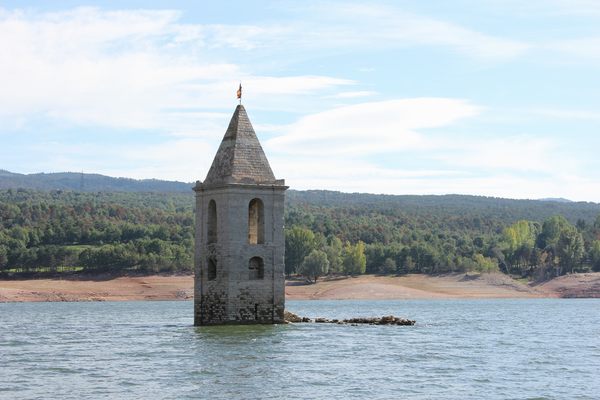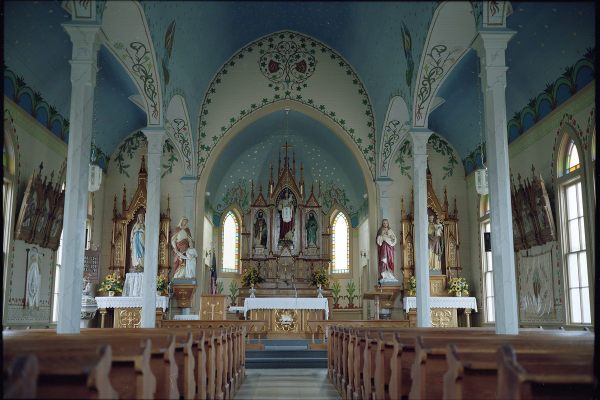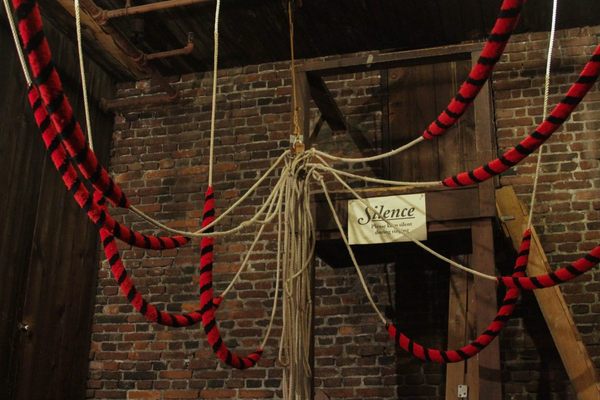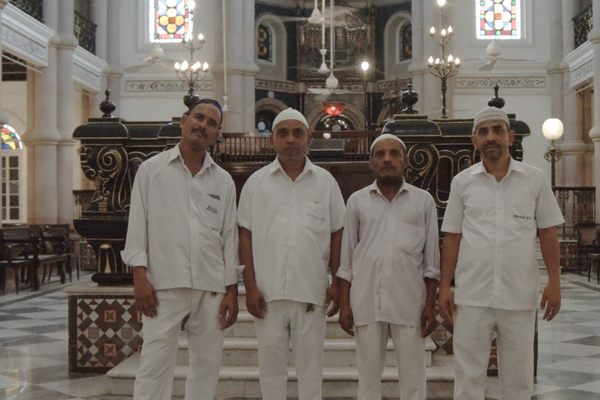Five Submerged Towers: The Only Survivors of Their Flooded Towns
Kalyazin Bell Tower (via Wikimedia)
Looming up from the waters, these submerged towers are the only visible remains of communities that existed before a flood. These bell towers and peaks of churches are the last signs that where now there is a reservoir, there was for hundreds of years a town. Below are five drowned towers that refused to sink below the waves even when the world around then was suddenly underwater.
CAMPANILE DI CURON
Schnals, Italy
photograph by Llorenzi/Wikimedia
The town of Curon Venosta existed in the Italian Alps for centuries before three lakes were merged into one following World War II and it was demolished to prepare for the flood. However, the Campanile di Curon bell tower stayed standing and remains a surreal reminder in the lake that the beautiful vista of nature is a manmade alteration. Some who live near the lake even claim they can still hear the tower’s bells, although they were removed before the waters arrived.
photograph by lorello/Flickr user
photograph by Bruno Maiolo
photograph by Alberto Bolchini
photograph by Frederik Schulz
KALYAZIN BELL TOWER
Kalyazin, Russia
photograph by Sergey Lemtal
Stalin wanted a reservoir near Kalyazin, and so the town in his way was flooded. However, the Neoclassical bell tower of St. Nicholas Cathedral remained visible in the new Uglich Reservoir, and become known as “The Flooded Belfry.” There are even Eastern Orthodox services still held in the structure a few times a year.
photograph by Lite/Wikimedia
photograph by John Menard
photograph by Snowgrove/Wikimedia
THE DROWNED CHURCH OF POTOSI
Uribante, Venezuela
photograph by Juan Tello
From 1985 to 2008 in this Venezuela lake, an eerie crucifix could be seen rising above the surface of the water. In 2010, the reservoir receded enough due to drought that a whole church was revealed, a ghostly reminder of the town of Potosi that was flooded for a hydroelectric power project. Now the church of Potosi has dried out, but only a skeletal frame remains behind its curiously intact façade.
photograph by Edprada/Wikimedia
SAN ROMÀ DE SAU
Vilanova de Sau, Spain
photograph by Christine und Hagen Graf
The Romanesque San Romà de Sau is all that’s left of a 1,000-year-old Spanish town that was flooded in a reservoir. When the waters are low, you can walk out to what remains of the church, and even find the outlines of the town’s foundations and an empty cemetery.
photograph by Josep Enric
The church revealed (photograph by Amadalvarez/Wikimedia)
photograph by Maria Rosa Ferre
photograph by David Beltra Tejero
View of the drowned church from above (photograph by Carme. R)
CHURCH OF MEDIANO
Mediano, Spain
photograph by Juan R. Lascorz
In 1974, the Spanish town of Mediano was consumed in the creation of one of the country’s largest reservoirs. Now only the peak of its 16th century church emerges from the water, which sometimes is low enough to show the whole stone tower dwarfed in the landscape.
photograph by Kom bo
photograph by Juan R. Lascorz
SUBMERGED TOWERS:
CAMPANILE DI CURON, Schnals, Italy
KALYAZIN BELL TOWER, Kalyazin, Russia
THE DROWNED CHURCH OF POTOSI, Uribante, Venezuela
SAN ROMÀ DE SAU, Vilanova de Sau, Spain

















Follow us on Twitter to get the latest on the world's hidden wonders.
Like us on Facebook to get the latest on the world's hidden wonders.
Follow us on Twitter Like us on Facebook